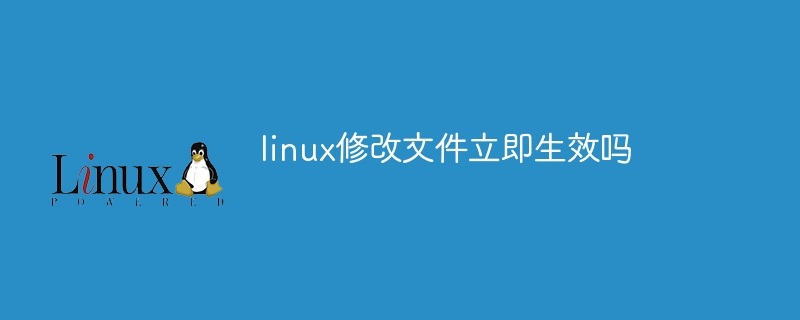
Whether a file is modified in Linux takes effect immediately depends on the file type and system configuration. For example: 1. Application configuration file, usually the application needs to be restarted or reloaded for the change to take effect; 2. Modification Script files, changes usually take effect immediately; 3. Binary executable files, the executable file needs to be recompiled or reinstalled; 4. Text files, such as log files or configuration files, changes usually take effect immediately.

The operating system of this tutorial: Linux5.18.14 system, Dell G3 computer.
In Linux, whether modification of a file takes effect immediately depends on the type of file and system configuration. The following are common file types and related instructions:
Configuration files: For some application configuration files, it is often necessary to restart or reload the application for the changes to take effect. This is because the application reads the configuration file when it starts and caches it in memory, so the application needs to be restarted to read the new configuration file.
Script files: When you modify a script file, the changes usually take effect immediately. You can execute the script file directly and the new changes will take effect immediately
Executable file: If you modify a binary executable file, you need to recompile or reinstall the executable file. Then the changes can take effect.
Text files: For some text files, such as log files or configuration files, changes usually take effect immediately. You don't need to do any additional operations, and the modified file contents will be reflected immediately.
It should be noted that in some special cases, the system may cache files to improve performance. At this time, modifying the file may not take effect immediately, but will take effect after a period of time. You can force the changes to take effect by reloading the app, clearing the cache, or restarting the system.
In short, depending on the file type and system configuration, whether the modified file takes effect immediately may vary. For some applications or system components, additional action may be required for changes to take effect.
The above is the detailed content of Does modifying a file in Linux take effect immediately?. For more information, please follow other related articles on the PHP Chinese website!